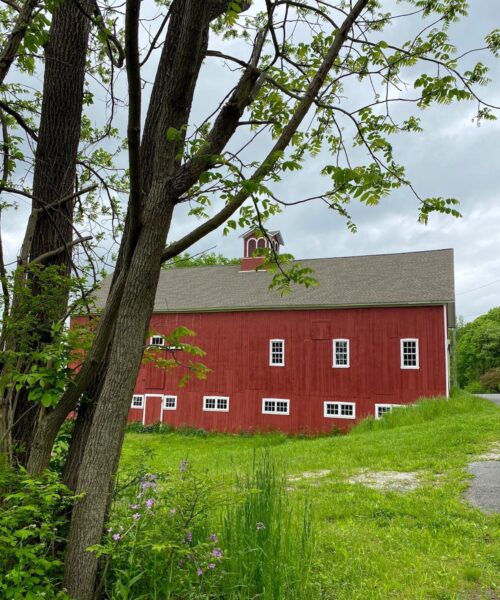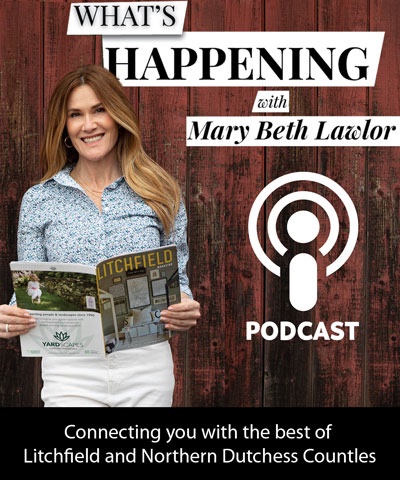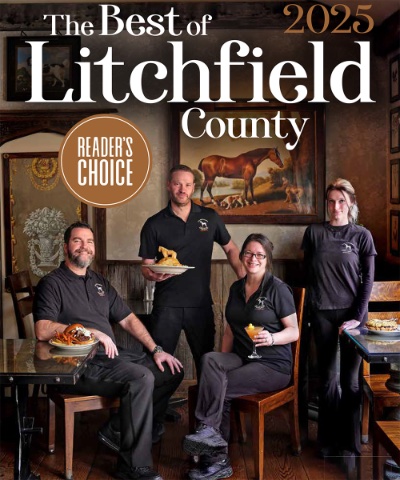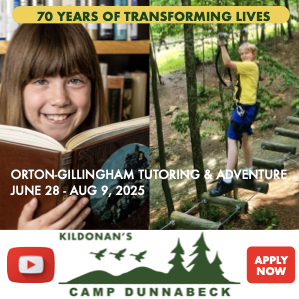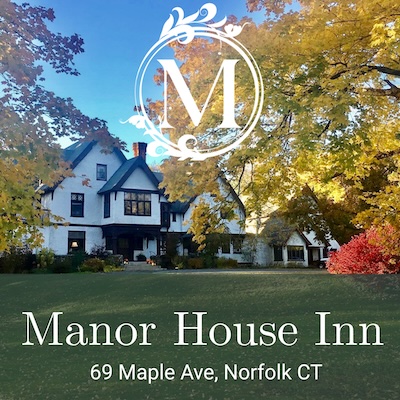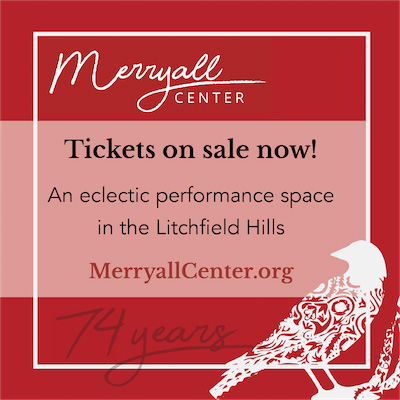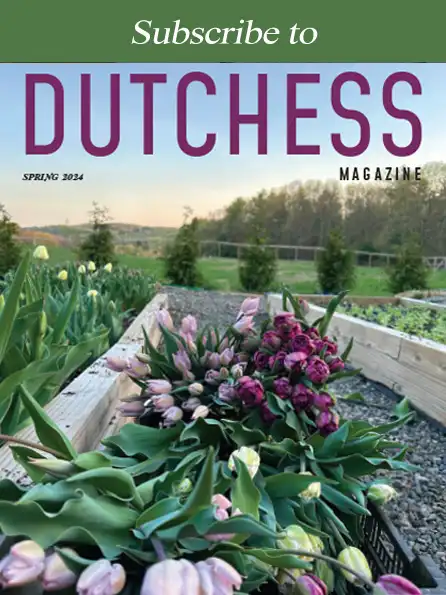June 9, 2020
By Kim Wheeler Valzania of New Milford, CT
When my sister Keri was a little girl, she bounced like a spring from her bed on the first day of summer vacation, and swiftly pedaled her banana-seat Schwinn “chopper” down Merryall Road toward the Smyrski’s Farm. For Keri and I, the 1970’s were a magical time when encouraged outdoor activity melded seamlessly with limited parental supervision. “The Farm” (as we’ve always called it), was literally right around the corner, less than a mile away from our little white, shoe-box, ranch house on Mt. Tom Road. My industrious sister was on a mission. At age seven, she was set on getting herself a “summer job” so she wouldn’t be bored all day.
The Smyrski Farm, known today as Mayapple Hill Farm was owned and operated by four of the seven Smyrski siblings: Lucy, Sophie, John, and Mary. Their large, “Italianate Victorian” style farmhouse occupied one side of the quiet country road, while directly opposite sat their beautiful barns, dairy buildings, open pastures, and grazing fields.
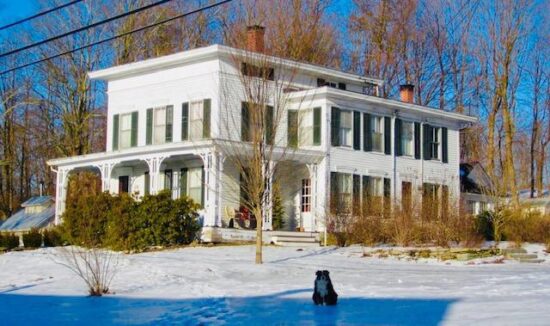
After hustling her way there, Keri chucked her bike on the lawn, and earnestly knocked on the front door. Mid-breakfast, Lucy answered. Timidly, my sister asked, “Can I work here?” Keri recalls that Lucy stopped chewing and squinted at her for a moment before smiling kindly. “You don’t have to pay me,” she pleaded. “I just want to work here and help you with farm stuff, and be around the animals as much as possible. Would that be okay?”
I can only imagine what Lucy Smyrski was thinking that morning. On her well worn stone slab doorstep stood a tan, shy, wide-eyed snip of a girl with dirty knees and a requisite Dorothy Hamill bowl haircut who was looking up at her with a mixture of hope and resolve, though more importantly, without a parent in tow telling her what to say. How could Lucy Smyrski say no? Keri wanted to be “allowed” to work all day, and my goodness, she was willing to do it for free!
I quickly latched on to the coattails of my sister’s idea, but truth be told, I was more of a farm work “dabbler.” I loved hanging out at the farm, but did so when it suited me, which was when a calf was about to be born, or something equally fun was happening. I can’t claim that I was as dedicated as she was to completing the jobs we were given, but I hauled my fair share of fieldstone from the jagged meadows, and most certainly cleaned out a few dirty barns and pens. I helped with the milking too, and especially loved the “retired” dairy cows that no longer produced, but were still “part of the herd.” These “older ladies” were kept in a separate corral and given sweet names like Evelyn (better known as “E.C.”) and Constance. Like my sister, I just loved being there.
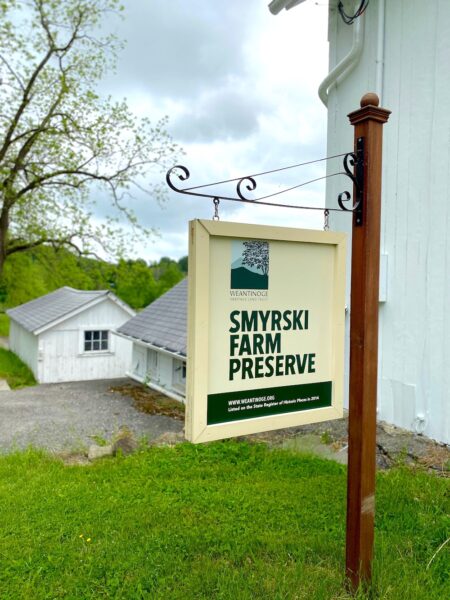
Growing up in the Merryall section of New Milford, my family folklore includes this story of how my seven year old younger sister landed her first job and let me tag along for the ride. It was a “job” laden with lovely, enduring childhood memories. Recently, we spoke about our summers helping the Smyrski’s, with Keri adamantly declaring, “it was one of the best things I ever experienced because it taught me a lot about real work ethic, death, birth, people, animals, industry, and of course so many of the lost pleasures that don’t involve a screen of any kind.”
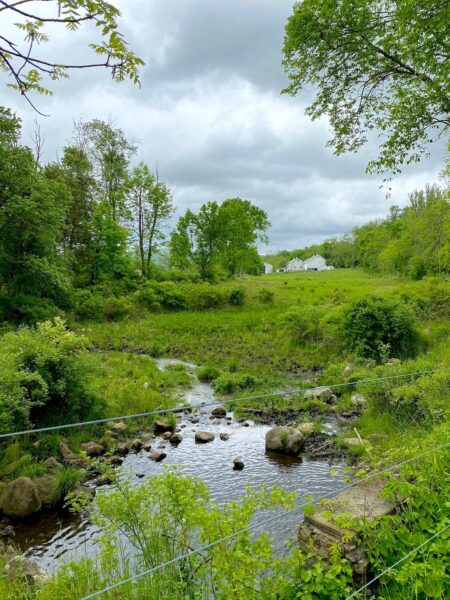
She clocked countless hours there. On rainy days she would curl up in the loft of the big red barn, (erected in 1763), and read while inquisitive, but somewhat feral cats watched for a bit, eventually making their way closer. The barn was Keri’s favorite place on the farm, and she often remarks that her memories of summers spent helping the Smyrski siblings are still clear as a bell.
Exhausting, soul-feeding days spent really working (yet enjoying every minute of it from sun up to sun down) is not something a kid ever forgets.
I believe Covid-19 has most of us forgetting the perennial, cyclical nature of life. One thing I keep hearing is “this too shall pass,” and I believe it. Right now, though, it’s challenging to think about anything other than getting through this pandemic and back to “normal.” I think we might all agree that normal will look a lot different when this is truly over. Covid-19 has taught me something I’ve been trying to learn my entire adult life: We can grow, move on, and experience “new pastures.” We can fight for change but to do so, we must not forget to keep intact the roots of all the freedoms we enjoy, which are often the smaller ones we tend to take for granted. To simply be free from worry, or free to roam are no small things. Aside from resilience, I’m learning to step back once again. It’s not that I appreciate things more now, it’s that I appreciate things, period.
Photos in post by author.





